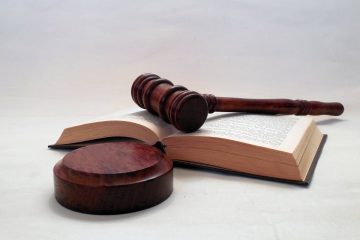There may come times when your client and an opposing attorney simply don’t get along, to the extent that you want to report their behavior before a grievance committee.
New York ethics opinions make it clear that it is your duty to report knowledge of another lawyer’s misconduct if it raises “substantial doubt” as to their honesty or trustworthiness. But where can you file this report?
1. Your Client
Lawyer misconduct can have devastating repercussions for both attorney and client. If you suspect your lawyer has behaved unethically, filing a formal complaint might be your best course. Most states offer options to file this kind of grievance with either their local bar association or their state bar association’s disciplinary board – who in some cases may issue public censure, suspend or disbarment proceedings for such allegations.
Keep in mind, however, that your duty of reporting is limited. Ethics opinions and commentary suggest that you only owe a duty to report information regarding another attorney’s misconduct to a tribunal if your knowledge meets a high threshold–e.g. it raises “substantial doubt as to his/her honesty, trustworthiness or fitness as an attorney”. Furthermore, any confidential client information (unless permitted by client) and information protected under Rule 1.6 cannot be divulged or gained through participation in bona fide lawyer assistance programs cannot be disclosed or disclosed
2. Your Firm
An attorney must inform their firm about a suspected violation of the Rules of Professional Conduct when she has direct, first-hand knowledge. Her knowledge should not be based on feelings, suspicion or hearsay; rather, an attorney must have violated a specific disciplinary rule or committed conduct which casts serious doubt over his honesty or fitness for practice.
Upon becoming aware that an attorney practices in your county, your next step should be contacting their respective Attorney Grievance Committee and reporting your allegations. Once done so, this committee can investigate and, if needed, take appropriate disciplinary actions such as private reprimand, public reprimand, probation suspension or disbarment against them.
Not every disagreement with an opposing attorney rises to the level of misconduct that requires reporting; an honest disagreement about fees should likely not constitute a violation of rules. If in doubt as to whether another attorney’s behavior warrants reporting, speak with your own firm’s ethics counsel.
3. Your Bar Association
Attorneys must report professional misconduct to their bar associations when they have first-hand knowledge and can substantiate it with information derived from first-hand sources, according to Rule 8.3. Their knowledge cannot be based solely on feelings, beliefs, suspicions or hearsay.
Typically, the bar will investigate a complaint by reviewing any documents and court records associated with it, interviewing witnesses and speaking directly with the attorney involved. Based on the outcome of their investigation, an admonishment, letter of caution or other informal sanction may be issued against them.
Filing a complaint against an attorney should never be taken lightly, yet you don’t require extensive legal knowledge in order to file one. Communication should take place via certified mail so there can be no dispute as to its receipt; additionally, seeking advice from qualified counsel might help if there are serious ethical violations occurring at work.
4. Yourself
Although making public records of attorney misconduct may feel awkward, doing so may help protect other clients from experiencing similar experiences. An attorney found guilty of misconduct can face severe repercussions such as disbarment – usually marked on state bar searches and consumer alerts so potential clients are aware of any disciplinary proceedings taken against their counsel in the past.
Note, however, that New York Rule 8.3 only mandates attorneys reporting knowledge of another lawyer’s violation of a rule of professional conduct if that information cannot be kept secret and creates “substantial doubt” as to his or her honesty, trustworthiness or fitness to practice law.
In order to meet the requirements of New York Rule 8.3, you must possess firsthand knowledge of an attorney’s misconduct; you cannot rely on feelings, beliefs, or suspicion as basis for filing charges; instead, this knowledge must come directly from them; not via involvement with any bona fide lawyer assistance program or through other sources.
